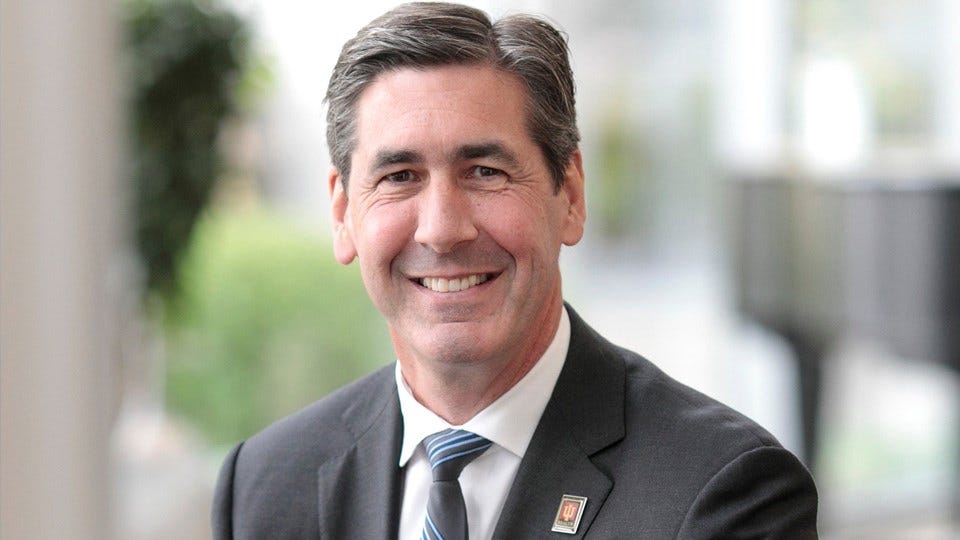Three insights into the coronavirus crisis in Indiana

Subscriber Benefit
As a subscriber you can listen to articles at work, in the car, or while you work out. Subscribe NowIt’s hard to draw firm conclusions about a crisis that has yet to run its course in Indiana and across the globe. So take these as three tentatively drawn insights about the coronavirus pandemic, which has challenged in unprecedented ways our state’s ability to protect its people.
First, the fight against COVID-19 has truly tested our ability to collaborate. From what I’ve seen, Indiana passes the test.
From the start of the pandemic, I’ve watched as my fellow healthcare leaders have picked their heads up from running their own operations and gotten engaged in the common fight. And state government has been massively helpful (with special plaudits to the governor’s office, the Department of Health and FSSA).
Confronting the pandemic requires barriers to cooperation to come down, and they have. Healthcare providers, government, suppliers, private industry, not-for-profits and academia are sharing information, supplies, counsel and assets not normally shared. And Indiana has seen an outpouring of aid, in the form of donations of money, equipment and much-needed supplies, to help our courageous healthcare workers on the front lines. Phone messages and emails offering help continue to fill my in-box and make a positive difference to our teams.
The cooperation has been vitally important in smaller ways as well, like consistency of messaging to make sure the public isn’t receiving contradictory information, and creating a climate of trust so those with needs feel comfortable asking for help.
Second, as we go about flattening the curve of coronavirus cases and returning to a more normal phase in our lives, we should do so with renewed confidence in our ability to address public health crises with an evidence-based approach. Hoping this goes away is not a plan. Nor are anecdotes or stories we hear in the media. We need to come out of this crisis with a strengthened belief that the public welfare is best served by employing best available approaches to problem-solving based on facts and science.
That includes using our shared knowledge to benefit the entire public. The rampage of coronavirus has once again taken particular aim at those especially vulnerable to health crises – this time the elderly, prisoners, the poor, African-Americans and those with existing illnesses.
My third insight is that this pandemic has struck squarely at the intersection of biology and the economy, making the fight against it much trickier and difficult to wage.
How to justify stay-at-home and business shutdown orders when they might make biologic sense but wreak havoc on our economy? Such questions have required a weighing of options to balance biologic imperatives against the realities of what they could mean, if instituted, to people’s livelihoods.
As a healthcare leader, I’ve found myself in discussions with politicians and business leaders over how to defeat a deadly virus without doing long-lasting harm to our economy. That’s not a conversation those in healthcare, industry or government are comfortable having. In Indiana and elsewhere, however, we in the life sciences are situated to deal with these issues because we live in this intersection daily. We can work with those outside healthcare to aim for the right balance between defeating a viral enemy and not doing lasting injury to our economic wellbeing.
While the crisis we’re seeing with the coronavirus will run its course perhaps for many more months, the valuable insights and lessons we can learn from the crisis and our collective response to overcome it stand to benefit us for years. We can win this generational fight and learn from it.
Dennis Murphy is president and chief executive officer for Indiana University Health.
